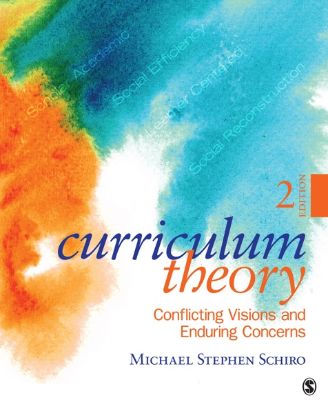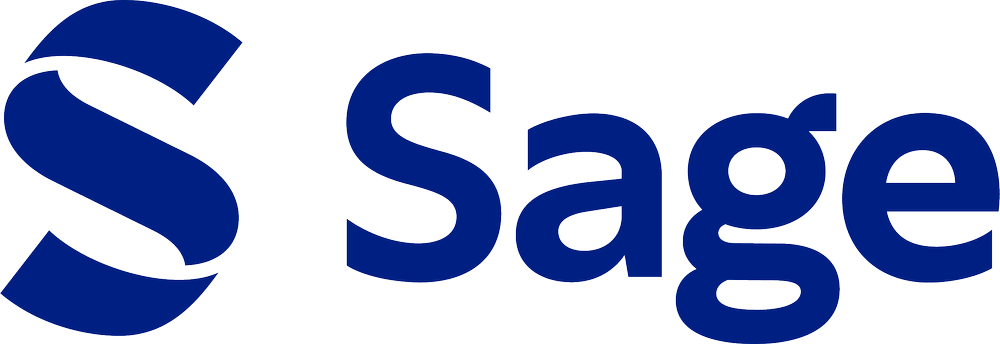Curriculum Theory: Conflicting Visions and Enduring Concerns

Námskeið
- NÞN1510160 Námskrár og þróun náms og kennslu
Lýsing:
The Second Edition of Curriculum Theory: Conflicting Visions and Enduring Concerns presents a clear, unbiased, and rigorous description of the major curriculum philosophies that have influenced educators and schooling over the last century. Author Michael Stephen Schiro analyzes four educational visions: Scholar Academic, Social Efficiency, Learner Centered, and Social Reconstructionùto enable readers to reflect on their own educational beliefs and more productively interact with educators who might hold different beliefs.
New to the Second Edition: Additional historical material on the Scholar Academic ideology is added in Chapter 2. In Chapter 2, the section on teaching was reorganized and a new subsection is added on Teachers as Transmitters, Mediators, or Translators. Several new sections are added to Chapter 4 on the Learner Centered ideology: The major section provides a description and analysis of a Learner Centered curriculum.
Others include things such as a discussion the relation between knowledge and experience, and the nature and structure of the learning environment of the ideology. Several sections of Chapter 4 have been reorganized under new headings to add clarity to the chapter. Seven new sections have been added to Chapter 6: Six of these sections are plays in which four teachers discuss their beliefs about enduring curricular issues and related current "hot" curriculum topics, in ways that highlight the differences between the ideologies.
Annað
- Höfundur: Michael Stephen Schiro
- Útgáfa:2
- Útgáfudagur: 2012-04-24
- Blaðsíður: 320
- Hægt að prenta út 2 bls.
- Hægt að afrita 2 bls.
- Format:ePub
- ISBN 13: 9781452289854
- Print ISBN: 9781412988902
- ISBN 10: 1452289859
Efnisyfirlit
- Cover Page
- Title
- Copyright
- Brief Contents
- Detailed Contents
- Preface
- Acknowledgments
- Chapter 1: Introduction to the Curriculum Ideologies
- Your Beliefs About Curriculum
- The Curriculum Ideologies
- The Scholar Academic Ideology
- The Social Efficiency Ideology
- The Learner Centered Ideology
- The Social Reconstruction Ideology
- Historical Perspective on the Ideologies
- Curriculum Workers
- The Nature of the Curriculum Ideologies
- Chapter 2: Scholar Academic Ideology
- Scholar Academic Curricula
- UICSM and SMSG School Mathematics
- Man: A Course of Study
- Curriculum and the Disciplines
- Initiation Into the Disciplines
- Grounding Curriculum in a Discipline
- Drawing Upon the Discipline's Knowledge
- Priorities
- Disciplines, Intellect, Knowledge: An Assumed Equivalence
- Education as an Extension of Disciplines, Intellect, Knowledge
- Disciplines, Intellect, Knowledge: Global Considerations
- Disciplines, Intellect, Knowledge: Local Considerations
- The Academic Disciplines
- The Discipline as a Community
- The Discipline as a Hierarchical Community
- The Learning ↔ Teaching Dynamic of the Discipline
- The Educative Process Within the Academic Community
- Curriculum Issues
- Classification and Selection of Disciplines
- Curriculum as a Reflection of the Discipline
- Curriculum Improvement
- Historical Context
- Aims
- Knowledge
- The Nature of Knowledge
- The Form of Knowledge
- The Origin of Curriculum Knowledge
- Knowledge and Objective Reality
- The Child
- The Child as Mind
- The Child as Memory and Reason
- The Incomplete Child
- Learning
- The Learning ↔ Teaching Dynamic
- Direction Within the Learning ↔ Teaching Dynamic
- Transmitting and Receiving Agents of the Learning ↔ Teaching Dynamic
- Learning Theory as Reflection of the Discipline
- Lack of Concern With Formal Learning Theory
- Many Theories of Learning
- Learning to Parallel Inquiry
- Readiness
- Teaching
- Teachers as Members of a Discipline
- Teachers as Transmitters, Mediators, or Translators
- Teaching Methods
- Evaluation
- Student Evaluation
- Curriculum Evaluation
- Concluding Perspective
- Scholar Academic Curricula
- Chapter 3: Social Efficiency Ideology
- A Scientific Technique of Curriculum Making
- Programmed Curriculum and the Behavioral Engineer
- Programmed Curriculum
- Behavioral Engineering
- The Analogy
- Objectives and Standards
- Education
- Scientific Instrumentalism
- Social Orientation
- Society
- People in Society
- Educating People to Live in Society
- Education for a Better Society
- Objectives
- The Form of Objectives
- Gathering Terminal Objectives
- Acquiring Progressive Objectives
- Atomism
- Objective Reality
- Causality
- Ends, Means, and Instrumental Values
- Historical Context
- Social Reform
- Utilitarian Education
- Behavioral Psychology
- Scientific Methodology
- A Century of Forgetting
- Accountability Movement: From Educational to Administrative and Political Initiatives
- Aims
- Knowledge
- The Nature of Knowledge
- Knowledge and Objective Reality
- Learning
- A Behavioral Viewpoint
- Assumptions About Learning
- Readiness
- The Child
- Lack of Concern
- The Child as a Worker
- Individualized Programmed Instruction
- Teaching
- Role of the Teacher
- Consequences
- Evaluation
- Reasons for Evaluation
- The Nature of Evaluation
- Objectivity and Atomization
- Appropriateness of Evaluation
- Concluding Perspective
- Chapter 4: Learner Centered Ideology
- Ideal Schools
- Ideal Schools for All Learners
- A Learner Centered Curriculum
- The Ideal School
- The Learner-Centered School
- The Activity School
- The Organic School
- The Integrated School
- Learners
- The Learner as Central Focus
- The Nature of the Learner
- The Growing Individual
- The Learner in the Present Tense
- Learning
- Developmental Viewpoint
- Learning Theory
- Learning Leads to Knowledge
- Teaching and Learning in Instructional Environments
- The Person in an Environment
- The Learning Environment
- Structure of the Learning Environment
- Teaching
- Freedom, Individualism, and Shared Responsibility
- The Curriculum: Unit of Work Versus School Subject
- Scope
- Sequence
- Flexibility
- Concern for the Whole Person
- Movement From the Concrete to the Abstract
- Responsibility
- Historical Context
- Aims
- The Child
- The Child as an Integrated Person
- The Child as a Meaning-Making Organism
- The Child's Subjective Being
- Learning
- Learning as Natural
- The Mechanics of Learning
- Stages of Learning
- Teaching
- The Teacher as Diagnostician
- The Teacher as Provider of the Environment for Learning
- The Teacher as Facilitator of Learning
- Characteristics of the Teacher
- Knowledge
- Personal Meaning and Knowledge Construction
- Knowledge and Experience
- Knowledge as a Derivative Concept
- Knowledge and Reality
- Evaluation
- Assessment for Growth
- Standardized Objective Testing
- Grading
- Student Evaluation
- Curriculum Evaluation
- Concluding Perspective
- Ideal Schools
- Chapter 5: Social Reconstruction Ideology
- Highlander
- Sixth-Grade Social Reconstruction Mathematics
- Projects
- Instructional Procedures
- Start Where Students Are
- Personal Experience
- Intense Discussion
- Follow-Up
- Vision and Social Action
- Academics
- Society and Reconstruction
- Social Perspective
- Deep Social Structures
- The Individual in Society
- Society, Change, and Crisis
- Reconstruction and Vision
- Social Dynamics
- Reconstruction Through Education
- The School as the Institution of Change
- Education as a Social Process
- Educational Methods: Group Discussion and Experience
- Education and Language
- Education and Social Change
- Civic Responsibility
- Education and Politics
- Education and Socialization
- Historical Context
- Aims
- The Child
- Children as Social Agents
- Children as Meaning Makers
- Children in Society
- Learning
- Meaning Making
- Meaning Structure
- The Nature of Learning
- Teaching
- The Discussion Method
- The Experience Method
- The Teacher as Colleague
- Characteristics of Teaching
- Characteristics of Teachers
- Knowledge
- The Social Construction of Knowledge
- Knowledge and Value
- Knowledge and Reality
- The Creation of Knowledge
- Characteristics of Knowledge
- Evaluation
- Student and Curriculum Evaluation
- Perspective on Increased Student Testing
- Concluding Perspective
- Chapter 6: A Comparative Overview of the Curriculum Ideologies
- Comparative Summary
- Aims Play
- Aims Comparison
- Knowledge Play
- Knowledge Comparison
- Learning Play
- Learning Comparison
- The Child Play
- The Child Comparison
- Teaching Play
- Teaching Comparison
- Evaluation Play
- Evaluation Comparison
- Other Parameters
- Freedom
- Time
- Social Improvement
- Multicultural Education
- Teacher Education
- Concluding Perspective
- Comparative Summary
- Chapter 7: Individual Perspectives on the Curriculum Ideologies
- Curriculum Life Histories
- Can People Believe in More Than One Ideology?
- More Than One Ideology
- Posture Toward Different Ideologies
- Why Do Educators Change Ideologies?
- Concluding Perspective
- Appendix: Curriculum Ideologies Inventory
- References
- Index
- About the Author
UM RAFBÆKUR Á HEIMKAUP.IS
Bókahillan þín er þitt svæði og þar eru bækurnar þínar geymdar. Þú kemst í bókahilluna þína hvar og hvenær sem er í tölvu eða snjalltæki. Einfalt og þægilegt!Rafbók til eignar
Rafbók til eignar þarf að hlaða niður á þau tæki sem þú vilt nota innan eins árs frá því bókin er keypt.
Þú kemst í bækurnar hvar sem er
Þú getur nálgast allar raf(skóla)bækurnar þínar á einu augabragði, hvar og hvenær sem er í bókahillunni þinni. Engin taska, enginn kyndill og ekkert vesen (hvað þá yfirvigt).
Auðvelt að fletta og leita
Þú getur flakkað milli síðna og kafla eins og þér hentar best og farið beint í ákveðna kafla úr efnisyfirlitinu. Í leitinni finnur þú orð, kafla eða síður í einum smelli.
Glósur og yfirstrikanir
Þú getur auðkennt textabrot með mismunandi litum og skrifað glósur að vild í rafbókina. Þú getur jafnvel séð glósur og yfirstrikanir hjá bekkjarsystkinum og kennara ef þeir leyfa það. Allt á einum stað.
Hvað viltu sjá? / Þú ræður hvernig síðan lítur út
Þú lagar síðuna að þínum þörfum. Stækkaðu eða minnkaðu myndir og texta með multi-level zoom til að sjá síðuna eins og þér hentar best í þínu námi.
Fleiri góðir kostir
- Þú getur prentað síður úr bókinni (innan þeirra marka sem útgefandinn setur)
- Möguleiki á tengingu við annað stafrænt og gagnvirkt efni, svo sem myndbönd eða spurningar úr efninu
- Auðvelt að afrita og líma efni/texta fyrir t.d. heimaverkefni eða ritgerðir
- Styður tækni sem hjálpar nemendum með sjón- eða heyrnarskerðingu
- Gerð : 208
- Höfundur : 8044
- Útgáfuár : 2012
- Leyfi : 380


